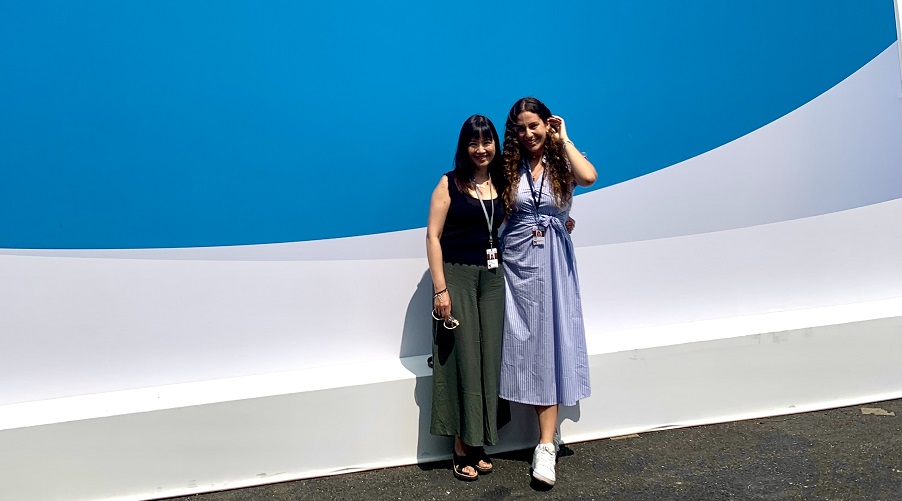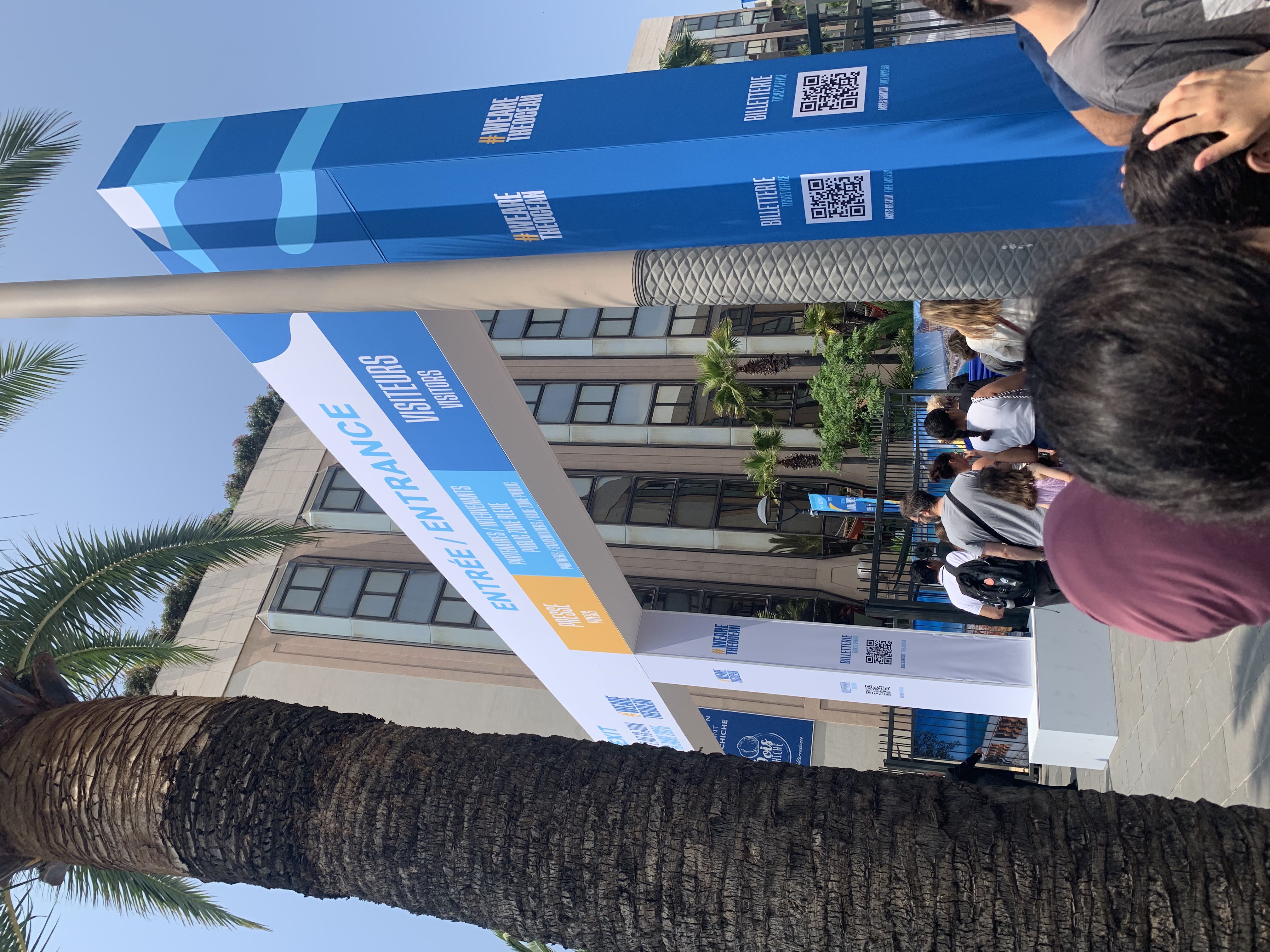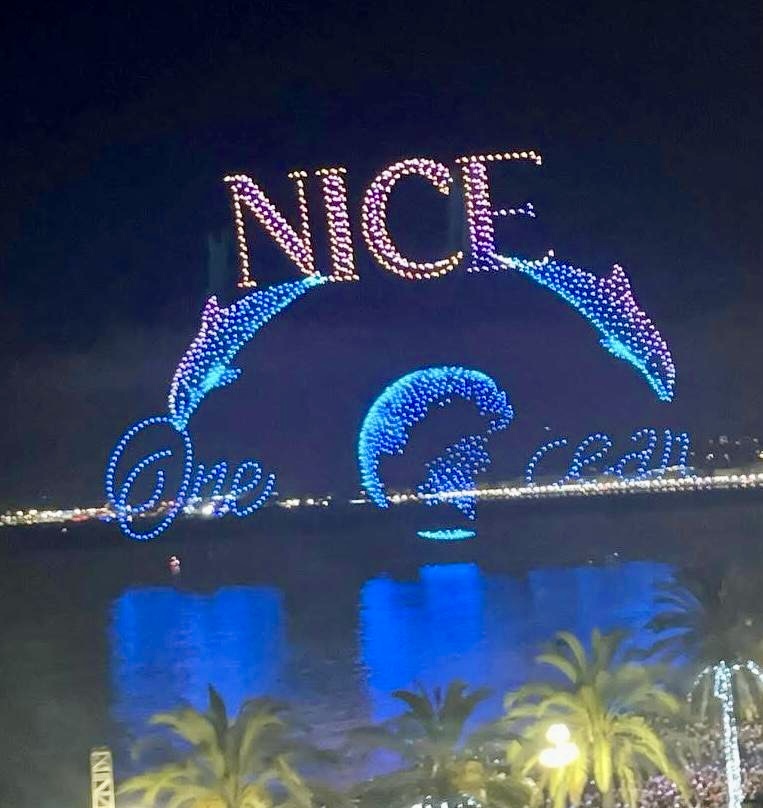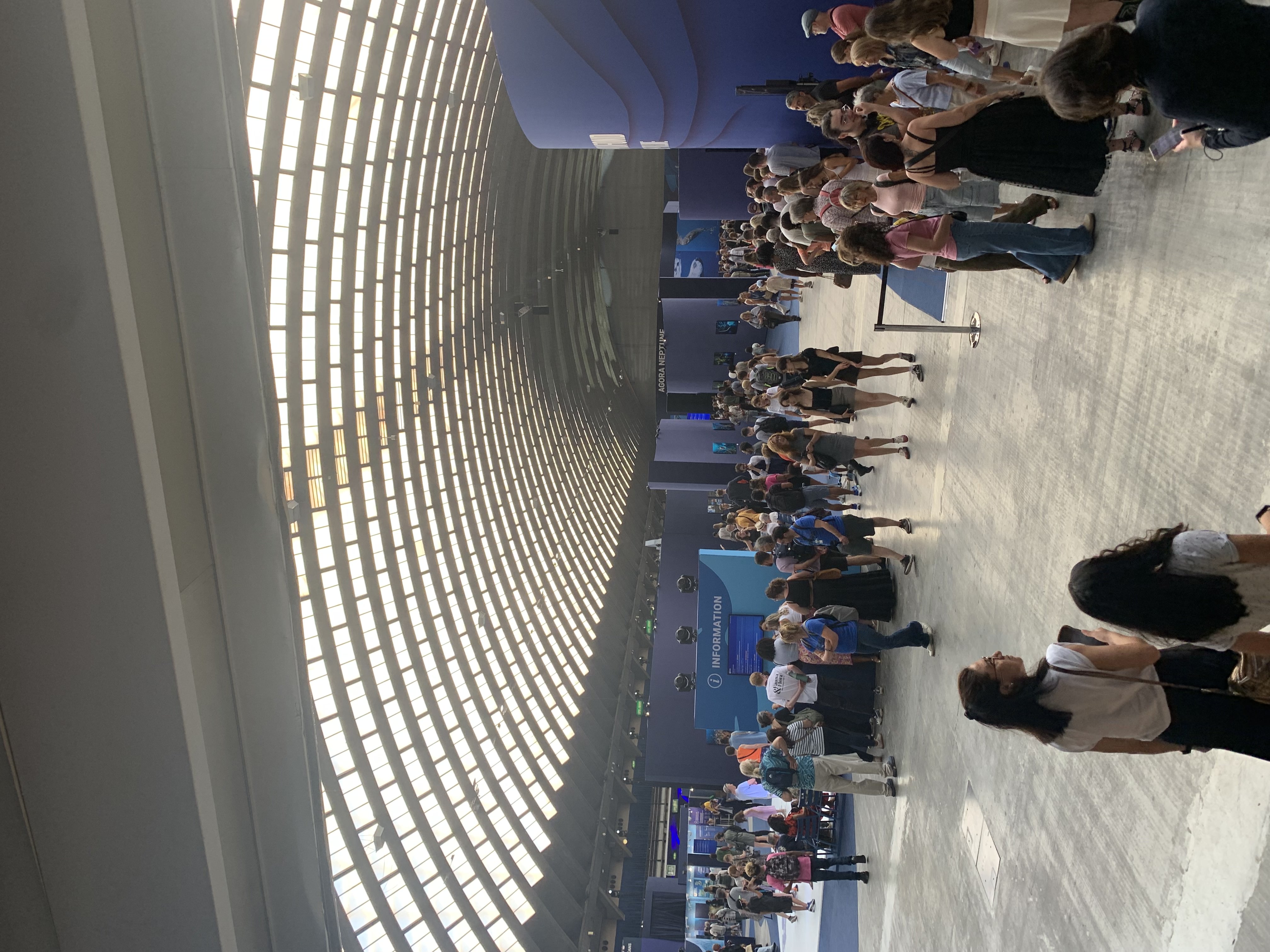By Vicky Lam.
Nice, in southern France, is known for its stunning Mediterranean coastline, and it proved to be a fitting host city for the United Nations Ocean Conference (UNOC) 2025, held from June 9 to 13. With over 15,000 participants from around the world, the event brought together governments, scientists, NGOs, Indigenous leaders, and civil society to advance action to conserve and sustainably use the ocean.
I felt incredibly fortunate to attend this global gathering. As a fisheries economist committed to sustainable ocean governance, this was an invaluable opportunity to learn from and connect with others dedicated to protecting marine ecosystems.
The week kicked off with a magical welcome: A spectacular drone and fireworks show over the Promenade des Anglais on the evening of my arrival. Seeing giant marine creatures light up the sky was not only visually stunning but also a symbolic reminder of what we’re all working to protect.
Before attending, I assumed UNOC would be a high-level political conference and would mostly involve official statements and broad declarations. And, to a certain extent, it was. I was not sure how relevant it would be from an academic or technical perspective.
Since I did not have to present this time (a rare experience for me!), I thought I might have more time to absorb the content and enjoy the event at a slower pace. I was wrong, but in the best way!
The UNOC schedule was packed, with main events and side events spread across the two major zones set up by he organizers and different venues. I found myself constantly on the move, eager to catch everything that caught my interest. Topics ranged widely from digital twin ocean technology and the European Ocean Observing System to sessions on marine spatial planning, innovative financing for the blue economy, innovative strategies for biodiversity conservation, and data transparency in ocean governance.
- Photo by Vicky Lam.
- Drone show at the opening of UNOC 2025. Photo by Vicky Lam.
- Photo by Vicky Lam.
One of the most memorable sessions for me was the one that focused on small-scale fisheries that were looking at their challenges and opportunities in the face of global change, the blue economy, and climate adaptation. What made it especially meaningful was that it brought small-scale fishers from different regions into the conversation. It was not common to see their voices included so directly, since most sessions at UNOC tend to feature high-level officials and/or scientists.
Hearing small-scale fishers speak about their real-life experiences and concerns was powerful. They talked about the importance of community-led efforts to protect the ocean, the need to rethink how we value marine resources, and the issues of data invisibility, marginalization, and pressure from industrial fleets. These conversations really resonated with the work we do at Sea Around Us, especially our efforts to reconstruct catch data and highlight the role of artisanal, subsistence and recreational fisheries. It reminded me how important it is to keep making these often-overlooked sectors more visible and to support more inclusive, evidence-based policies. After that session, I felt even more connected to the work we are doing.
Reflecting on my time at UNOC, I realize how much it broadened my perspective. From panel discussions to interactive exhibitions in the “Green Zones,” I came away with a deeper understanding of the complex, interconnected challenges facing the ocean and the creative, collective efforts underway to address them.
Achieving a sustainable ocean future won’t come from top-down decisions alone. It requires meaningful collaboration across all levels, especially with those whose livelihoods and cultures are closely tied to the sea, like small-scale and Indigenous fishers.
This experience has not only reinforced my commitment to evidence-based fisheries policy but also sparked new ideas for research and collaboration. I left UNOC 2025 energized and hopeful, and ready to contribute in my own way to the global movement for ocean sustainability.





